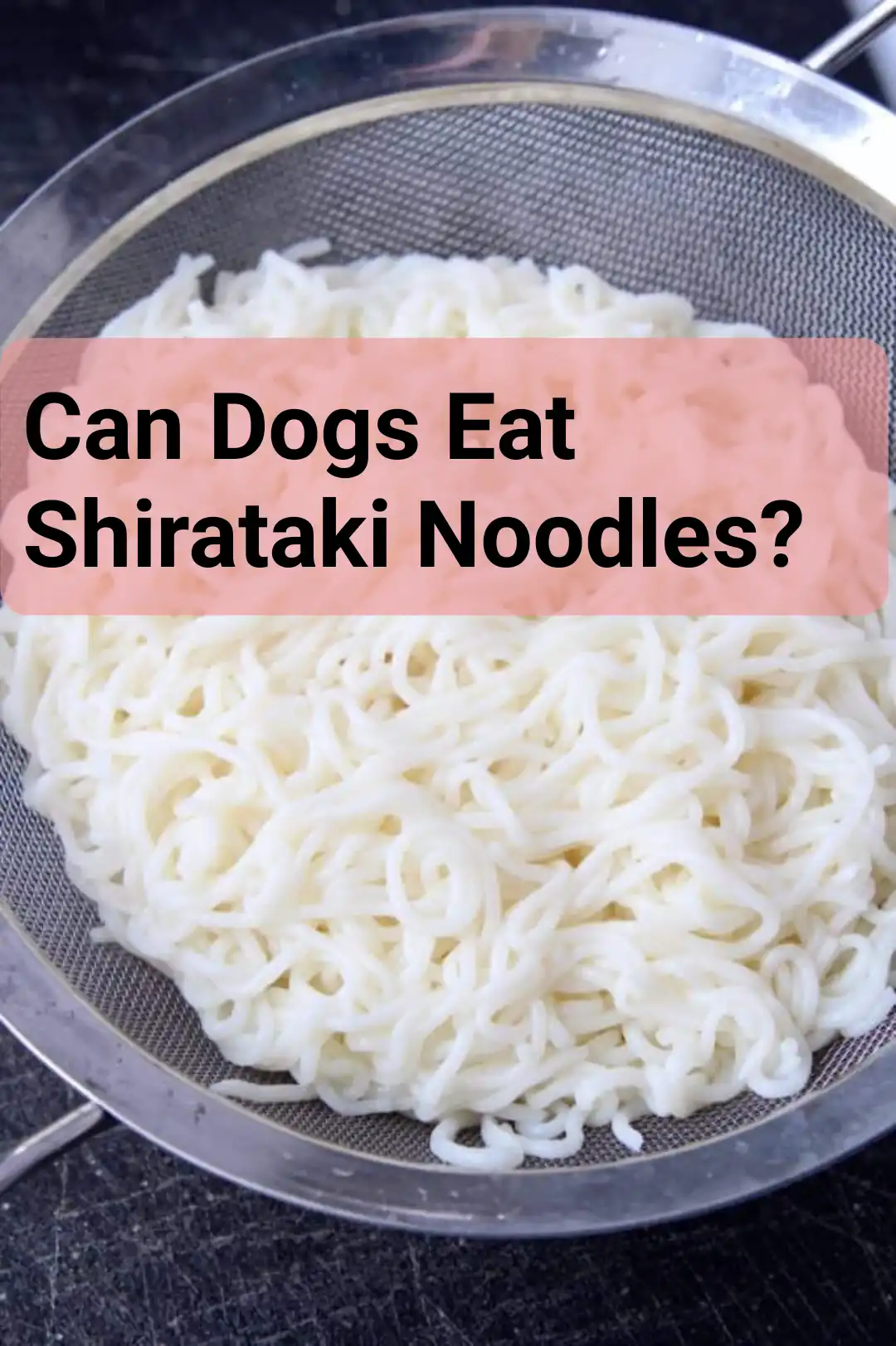Can Dogs Eat Shirataki Noodles?

While shirataki noodles may just appear like your typical noodles, you are bound to get a different opinion as soon as your fork twirls into them and you take a bite. It becomes clear that you have just experienced something spectacular.
These noodles have been a Japanese favorite for years. I love it because it is gluten-free, doesn’t require a spiralizer, and also has a low-carb content. Shirataki noodles come in numerous varieties, like the long, flat versions and a version that is slightly thicker than angel hair.
While humans can enjoy these noodles in all their glory, is it safe to let our dogs indulge too? Here is everything you need to know about shirataki noodles for dogs.
What are shirataki noodles?
Shirataki noodles, or Konjac noodles, unlike every other noodle made from either rice flour or wheat flour, are derived from the Konjac plant’s starchy roots. This noodle contains only 3% of this starch and as much as 97% of water. They are popular for their high glucomannan (a soluble fibrous compound with numerous health benefits) and low calorie content.
When it comes to appearance, Shirataki noodles are just as translucent as glass noodles, but they have a distinct texture: something in between rubbery and bouncy and slightly chewy. Just like most noodles, they are devoid of flavor and take up the flavor of any dish they are used in, like palabok, curries, or stir-fries. However, they have a slightly salty taste.
To make these noodles, the tuber-like part of the konjac plant’s stem (also known as the ‘corm’) is dug up from the ground, dried, and ground to form flour, which is then mixed with lime water, water, salt, and pressed into the noodles we consume today. It is sometimes found on shelves as yam noodles, or yam cake.
Can dogs eat shirataki noodles?
Dogs can have half a pack of shirataki noodles. Serving shirataki to dogs as part of their meal or as a treat is safe. When compared to other noodles like vermicelli noodles or your regular noodles, shirataki noodles have a lower calorie content of just 3% and boast lots of benefits.
I have constantly advocated against offering noodles as a staple in your dog’s diet, and this has been because of their high calorie content and, yet, insignificant nutritional benefits. When you feed dogs foods with high calorie content and yet, insignificant nutrients, you are supplying them with empty calories, which leads to nutritional deficiency and weight gain.
How do I Feed Shirataki Noodles to My dog?
If you are a fan of pancit bihon or the like, you can now offer some homemade versions to your dog with so much confidence (while making sure to eliminate harmful ingredients, of course).
To make a dog-safe treat with shirataki noodles, you just need to cook some beef or chicken, save the broth, cook some shirataki noodles, and combine them with the broth, steamed veggies, and protein. I can attest that your dog loves it crazy and devours it like my dog devours the resulting dish with so much joy.
This is just one way, there are numerous ways you could use this noodle as a treat or part of your dog’s dishes—just get creative.
Are shirataki noodles good for dogs?
The benefits of shirataki for dogs could be many. Firstly, it is a low-calorie food, which means you could use it to prepare a variety of foods and treats away from the usual boring or less flexible dog treats you have been making. Primarily, shirataki can be used as a healthy food substitute for a host of foods, making it suitable for lots of conditions some dogs face, like pancreatitis, gluten intolerance, etc.
Shirataki noodles have a low glycemic index, making them a great option for dogs with diabetes or prediabetic dogs. For fast-eating dogs and dogs who love to overfeed, the glucomannan content will make them feel fuller for longer periods of time. Shirataki noodles contain 20.2 mg of calcium, which could be beneficial to your dog’s bones and teeth.
However, the glucomannan content could cause bloating or trapped gas in some cases. So, do not discontinue your dog’s quality foods and start feeding only shirataki noodles to them. It can serve as a treat or as part of your dog’s balanced diet.
My dog ate shirataki noodles
If your dog ate shirataki noodles, there is absolutely nothing to worry about except if they consumed lots of them raw, then you will have to worry about possible intestinal blockage, which could be resolved by providing some fresh water for your canine buddy in a timely manner.
I have been offering shirataki to my dog for a long time now.
Can dogs have konjac noodles? Final Thoughts
Dogs can eat konjac or shirataki noodles. Konjac noodles are safe for dogs and can be served as part of a balanced dish or as a treat for your dog since they have very little calorie content and offer some benefits to your pooch.



